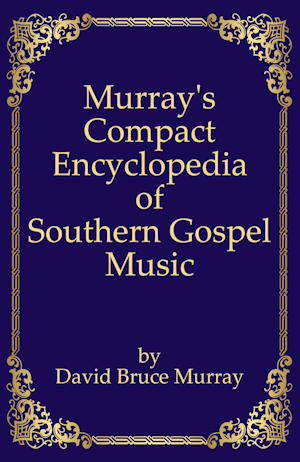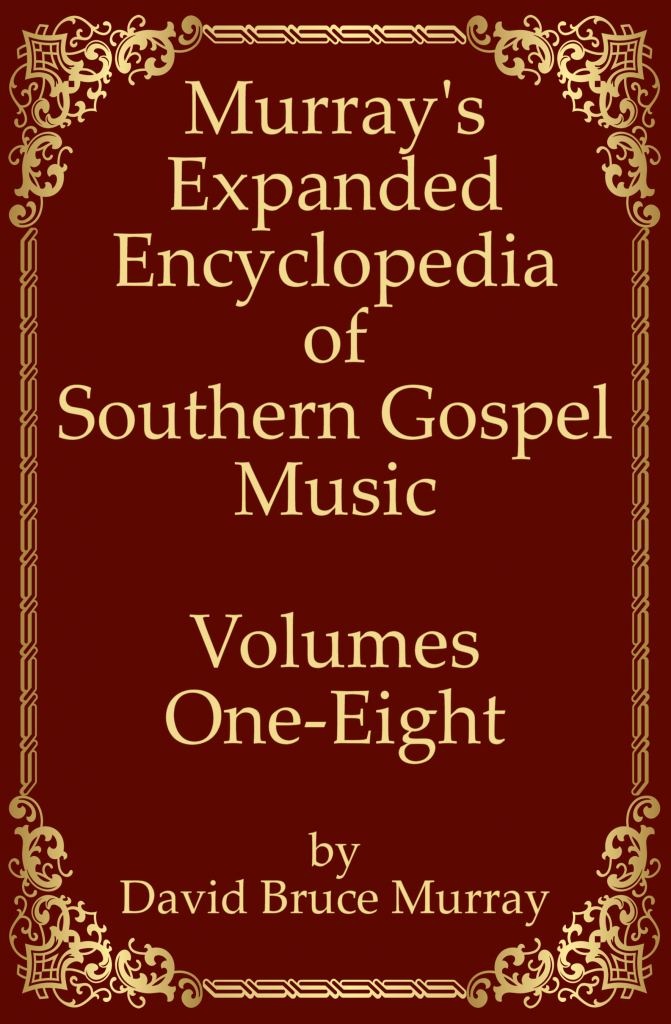Tracks aren’t going anywhere. They’re here to stay, and not just in southern gospel music. More and more mainstream artists are dropping live touring musicians in favor of tracks, both for the amount of control they give artists AND the support they offer in terms of stacked vocals and instruments.

Pictured: The modern southern gospel band
In SG, the industry standard for playing music tracks right now seems to be the Instant Replay, a stand-alone machine that allows users to program audio files to hot keys that can be instantly played. These machines are built for high-fidelty performance, and were originally designed for use in a radio broadcasting setting; the flexibility quickly made it a mainstay among southern gospel artists who needed to be able to play tracks without fumbling with a remote or CD player (although one must take the time to properly program the machine, and then make sure the buttons are properly labeled, lest you hit the wrong button and start playing the wrong song).
Last fall, I attended a concert by a major CCM artist. This group was a live five-piece band – drums, keys, electric guitar, bass, and the occasional acoustic guitar from the lead vocalist. This is more than enough musicians to pull off a live performance. However, the entire concert was augmented with pre-recorded studio tracks, which included additional guitars, synths, and yes, vocal stacks. It’s so common that some artists now only tour with a basic rhythm section with tracks mixed in (something that Gold City’s Band of Gold was doing as early as the 1992).
To accomplish this in the past, one either had to have a multi-track machine with them or use stereo split tracks – with a click track on one side (for the band to stay on tempo with the tracks) and the tracked parts mixed mono on the other side. There was little control over mixing the tracks – you got what you got, and you could either turn it all up or all down, and it was up to the sound engineer to blend the pre-recorded parts with the live singers/musicians.
Now, however, anyone with a laptop, a USB/Firewire cable, and software called Ableton can run multi-track presentations, with the ability to add, subtract, and remix individual parts. Only have drums and piano? That’s fine; we’ll just run the bass, guitars, and strings from the track and mix as necessary. Heck, thanks to in-ear monitors and break-out boxes, every person can get their own personal mix of tracks, live, and click tracks.
In fact, the church I play in now uses Ableton to synchronize tracks, live players, and even the lighting cues for a service. It’s all pre-programmed, and all you have to do is hit the button for the next song; the musicians hear the click and a count off, and a guide track cues them for different sections of the song. If you were to listen to my drum monitor, you would hear something like, “One, click, two, click, intro, two, three four….” before the track begins.
For mobile users, there is an iPad app called Loop Community. You create an account, and either purchase multi-track stems or upload your own studio multi-tracks, and you can run a multi-track backing recording that can be mixed track-by-track (and instrument-by-instrument). Have a night where your lead singer is having throat issues? You can sneak in their individual vocal lines as needed in real-time. With this kind of flexibility, groups could even get away with using vocal stacks on a cappella numbers (I know of at least one group that already does this).
For folks who lament the days of more spontaneous performances, these apps also allow artists to assign “sections” to the songs (verse, chorus, bridge, etc.) and jump between sections based on the tempo/click. One such device is a foot pedal called Looptimus that includes A, B, C, and D buttons. A, for example, would be assigned to Verse One, B to Verse Two, C to the Chorus, etc., and you can hit the section you want to return to with your foot (or hand, if you prefer). This gives the artist even more flexibility to adjust a performance based on audience’s responses. One downside, of course, would be if the track is very heavy in dynamics; you don’t want to go from an epic chorus to a low-key verse with no transition.
Apps like Loop Community require a bit more preparation initially, as you have to upload individual song mixes to the web and pull them down to your mobile device through the cloud, but once that is completed, you just set your concert playlist, program any breaks you need (and for how long), and you’re good to go.
Now granted, this might also require more work (or at least more expense) on the part of the studio engineers as well. Instead of just rendering a separate mix with (some) vocals muted, they now have to drop the entire multi-track file (including clicks) onto a hard drive as stand-alone wave files, which is significantly more costly than just burning a CD or putting files on Dropbox. For SG artists who may not need to constantly remix their tracks, this may not be a very effective method, but for artists who wish to use live musicians, this could be quite an improvement.
With more and more options available to artists (and an increasingly-affordable rate), do you think the old Instant Replays will go the way of DAT machines and minidisc players, or is this just too much work for some groups who can easily get by with a single stereo mix night after night?






Our group uses an 360 Systems Instant Replay. We have for 15 years or so. Last year it went belly up and I tried an iPad…laptop…and such. For our purposes, none was as quick and reliable as the Replay. We don’t always have a set list, so for on demand use the Replay is hands down best. We do stage a band ever now and then, so I can see where the iPad app thing would be nice to have multitracks available. Our church uses the iPad for our worship team and it works well with the planned service. It would be hard to switch songs or handle requests.
My group is a quartet. I play piano with tracks. I don’t have any need for different mixes from venue to venue, but it would be nice to be able to purchase Southern Gospel multi-tracks. I’m reluctant to use many off-the-shelf tracks due to piano fills.
Lately, I’ve been making my own tracks, so I can get exactly what I want.
For a while, I used the iJingle app on a Kindle which is really designed for radio DJs. I never really liked the touch screen, and I hated the headphone output. I might have liked the touchscreen better on an iPad, but the headphone output is just not made for driving a signal to a mixing board 50 feet away.
Now, I use a free program on my laptop called DigicartPC. It was written years ago, looks a bit bland, and is not supported by the creator, but it works great. I have 36 songs immediately ready to go at the press of a button (just like Instant Replay). I don’t use the laptop’s headphone jack. Instead, I bought a USB box made by Peavey with XLR outputs. I have to turn the gain way down on the mixing board, because it has signal to spare.
I agree DBM, it would be good to have the flexibility to change volumes or mute things during a track. Daywind, Crossroads, other companies could get in on this. $20-25 per song. Even if it is something similar to this http://karaoke-version.com. It would be great to be able to customize your track.
I think Daywind or Crossroads may be hesitant to go that route with their custom tracks, as that would probably require further licensing.
There is an app for the iPad/iPhone called “SoundCue” that seems to work as a digital “Instant Replay” machine. Holds up to 125 tracks ready to go with just the digital push of the button (definitely cheaper than the machine at $14.99!) We use it at our church for both special music and in the choir room for practice. Check their website at http://www.soundcueapp.com/.
I actually mentioned SoundCue in my original draft, but I must have removed it and forgot to add it back! I use SoundCue myself for solo gigs, both on an iPad and via iPhone. In fact, I ran a whole concert from my phone a couple years ago, since I was using the iPad to run the soundboard remotely.